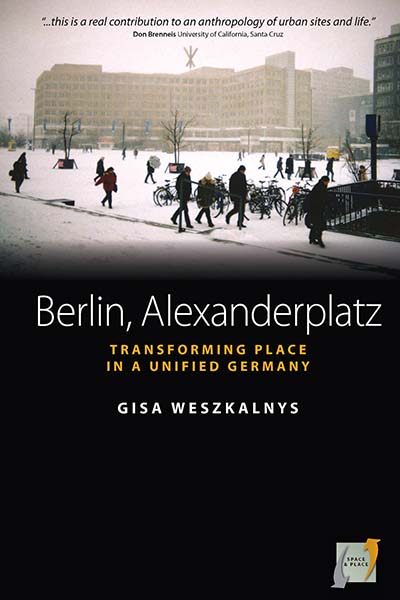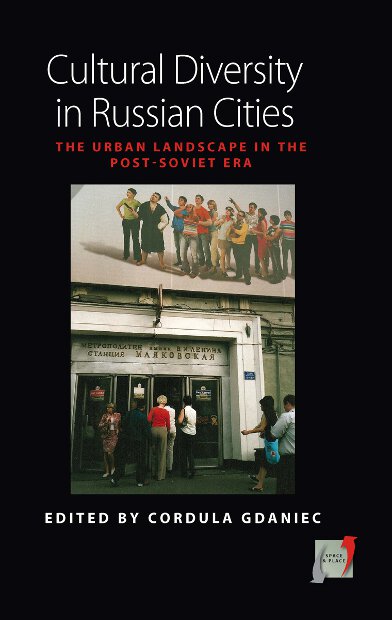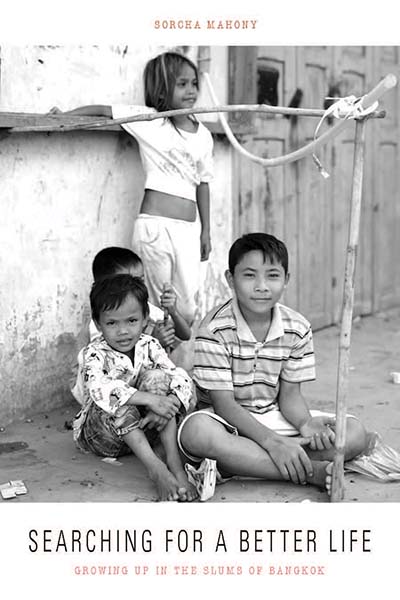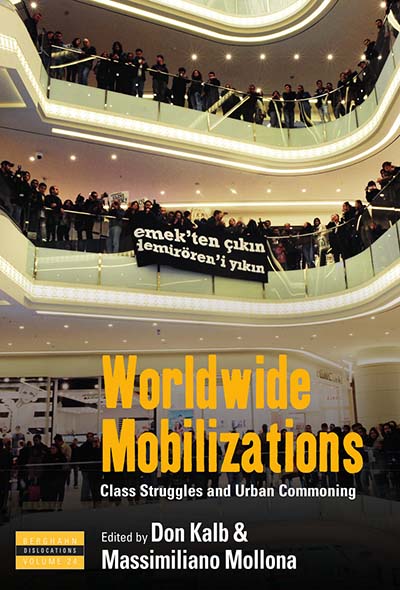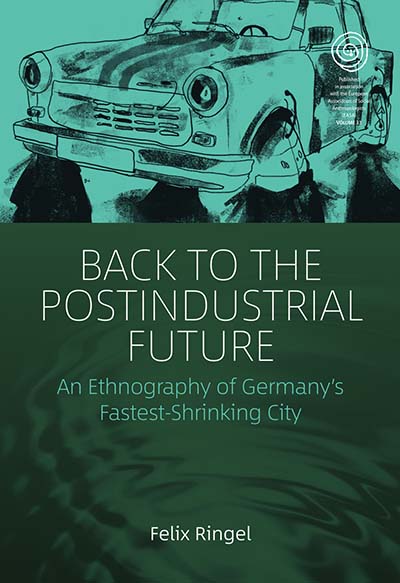
Series
Volume 33
EASA Series
See Related
Anthropology JournalsEmail Newsletters
Sign up for our email newsletters to get customized updates on new Berghahn publications.
Back to the Postindustrial Future
An Ethnography of Germany's Fastest-Shrinking City
Felix Ringel
238 pages, 16 illus., bibliog., index
ISBN 978-1-78533-798-7 $135.00/£104.00 / Hb / Published (March 2018)
ISBN 978-1-78920-805-4 $34.95/£27.95 / Pb / Published (May 2020)
eISBN 978-1-83695-887-1 eBook
Reviews
“This complex, provocative volume plunges us into the postindustrial, postsocialist world of Hoyerswerda, Germany’s ‘fastest shrinking city,’ and contemporary debates in anthropology about knowledge, time, affect, and meaning…This work speaks strongly to American Rust Belt cities and other sites of profound change in its methods, theory, and data, and should inspire further dialogues about anthropological knowledge as well the possibilities of urban action” • Choice
“I would recommend this book to anyone interested in the predicament of German society in the former DDR. Its combination of vivid details and human sympathy make it engrossing reading.” • JRAI
“Throughout the book, the author introduces, combines and discusses a broad range of theoretical strands. In particular, he relates anthropologies of time and knowledge. Each of the chapters works towards one specific analytical vantage point that make up the "morphology of the local future" (p. 176), drawing on and tying together different fieldwork settings and empirical data… Ringel undoubtedly makes an important contribution to the anthropology of the future… Let’s take this book and engage this question more explicitly: where and how to place our ethnographic insights in order to practically establish an anthropology not only of but for futures.” • Clio
“Felix Ringel’s new book may be the most thorough ethnographic study on the imagination of the future in rapidly shrinking industrial cities—a phenomenon deeply entangled with resurgent populism and antimigrant sentiment in Europe and the United States.” • American Ethnologist
“Back to the Postindustrial Future is a theoretically refined ethnography detailing the practices by which a community attempts to cognitively frame and give shape to the uncertain future that followed the process of deindustrialisation, the consequent demographic haemorrhage and the dismantling of portions of the town…This is a book that deserves a wide audience; both for what it accomplishes in itself and for the loose ends of threads it leaves us to follow.” • Social Anthropology
“[This book] offers a valuable and timely contribution to urban studies focusing on how urban communities relate to their future under conditions of shrinkage… [and] contributes to the ongoing debate about whether postsocialism is still a concept that has explanatory power in urban studies.” • Eurasian Geography and Economics
“For scholars of post-Wende Germany, Ringel offers a refreshing perspective that questions many of the established narratives about the legacy of socialism. A central strength of the book is that it does not rely on simplistic interpretations… Ringel reminds us that the future is open for change and that in studying the past and the present we are also part of its very construction.” • German Studies Review
“[Ringel’s] book masterfully captures the tension in Hoyerswerda residents’ lives as they navigate the interplay between their socialist pasts, their evolving postsocialist presents, and their potential postindustrial futures.” • EuropeNow
“Accessible and stimulating… There is little that I know of in our current literature that describes a present-moment European urban community in this ethnographic detail.” • Jane Guyer, Johns Hopkins University
Description
How does an urban community come to terms with the loss of its future? The former socialist model city of Hoyerswerda is an extreme case of a declining postindustrial city. Built to serve the GDR coal industry, it lost over half its population to outmigration after German reunification and the coal industry crisis, leading to the large-scale deconstruction of its cityscape. This book tells the story of its inhabitants, now forced to reconsider their futures. Building on recent theoretical work, it advances a new anthropological approach to time, allowing us to investigate the postindustrial era and the futures it has supposedly lost.
Felix Ringel is an Assistant Professor in the Anthropology Department at Durham University. His work on time, the future, and urban regeneration has been published in leading journals such as The Journal of the Royal Anthropological Institute, Critique of Anthropology and Anthropological Theory. He is co-editor of The Cambridge Journal of Anthropology’s issue on “Time-tricking: Reconsidering Temporal Agency in Troubled Times.”

